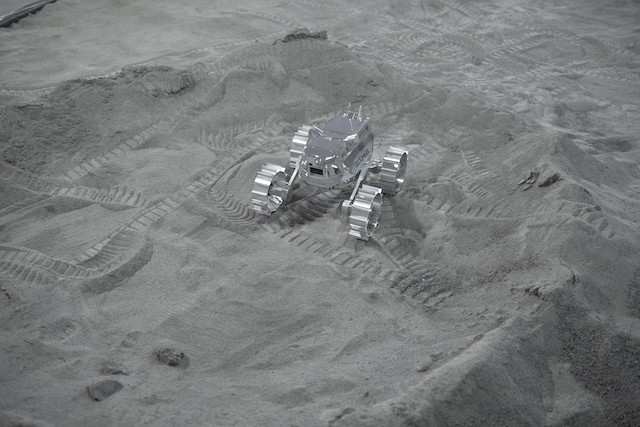iSpace Europe was one of four private companies to be awarded contracts to collect between 50 and 500g of regolith for the US space agency. Ispace Europe and the founding company that is headquartered in Japan were each awarded $5,000, Masten Space Systems of Mojave $15,000 and Lunar Outpost $1.
“Nasa […] made it clear that it was about setting up a precedent, not about negotiating the price of resources in future,” Ispace Europe managing director Julien Lamamy (pictured below) said at a press conference on Wednesday, explaining the mission is about normalising the extraction of lunar resources. “At Ispace we made a strategic decision to position a bid at $5,000 for each mission so that Nasa could award several bids, which is what happened. I think the big surprise is one company took one dollar as the contract price, which again shows it’s not about the price of the resources but your strategy to win this contract.”
US ambassador Randy Evans added that the contracts were part of a process to build a permanent lunar station capable of refuelling space craft that in future will continue on to Mars. “The fact that Ispace […] has the technology and knowhow to do this simple task we then create all of the other ancillary abilities necessary for creating a permanent station. That’s where the value comes in for iSpace and Luxembourg.”

Julien Lamamy is pictured at the Paperjam Club 10x6 event in November 2019. Photo: Jan Hanrion/archives
The micro-robotics firm was established in Luxembourg in 2017 as a spinoff of the Japanese firm, which was founded after Takeshi Hakamada entered the Hakuto project in the Google Lunar Xprize. The latter plans in 2022 to send its Hakuto-R lander to collect samples from Lacus Somniorum, on the northeastern nearside of the moon. The technology will be assembled and tested in Germany in 2021 before being sent to the US for launch in 2022.
Micro-rover made in Luxembourg
According to its 2019 annual results, Ispace Europe employs 15 people in Luxembourg, where it operates out of the Paul Wurth Incub.
The Luxembourg operation focuses on a micro lunar rover mission to map water deposits on the moon, which will be involved in a 2023 mission for Nasa. With funding from the National Research Fund, it has worked with the University of Luxembourg, and the Luxembourg Institute of Science and Technology to produce an advanced sensing, localisation and motion planning system that can operate on the moon’s surface.
This mission will enable the firm to test its technology in the harsh conditions it was designed for. On Wednesday Lamamy said the contract would also push the discussion further about a legal framework on space resources between companies and public agencies, a field in which Luxembourg is developing a foothold as part of its space resources project.
The announcement comes after Luxembourg was one of eight countries to sign the Artemis Accords, a project which aims to return humans to the moon by 2024 and establish a crewed lunar base by 2030.
